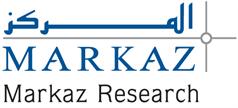
Markaz recently released its Monthly Market Research report. In this report, it examines and analyzes the performance of equity markets in the MENA region as well as the global equity markets for the month of November.
Markaz report said that MENA bourses had a positive month in November, with Egypt’s HRMS index rising 36.6 per cent, followed by Saudi’s TASI index (16.4 per cent). The Qatar index was the only one in the MENA region that ended the month in red, closing November down 3.7 per cent. Kuwait weighted and price indices had a positive month, climbing 3.7 per cent and 2.8 per cent, respectively. International Monetary Fund approved for a three-year, USD 12bn bailout programme for Egypt aimed at reviving the struggling economy, bringing down public debt and controlling inflation. The IMF immediately disbursed an initial loan tranche of USD 2.75bn to Egypt's central bank, and the remainder will be phased out over the next three years and are subject to five reviews on required reforms. The injection of new funds increased the Central Bank of Egypt's foreign reserves to USD 23.3bn. Stocks surged in November, as Egypt’s central bank allowed lenders to sell dollars to clients seeking to repatriate profits, further easing currency restrictions in an effort to bring back foreign investors and revive the economy. The Saudi index also rose in the month to erase the year’s losses, as the USD 17.5bn international bond issue in late October eased fears about its ability to cope with an era of cheap oil, and helped it begin making delayed payments to settle its debts to private companies. The S&P GCC index closed the month at 95 points, 7.9 per cent higher than previous month’s close.
The report stated that investor sentiment in Qatar was dampened by the country’s Energy Minister’s assessment that the global LNG market is entering a period of uncertainty as the current low price environment deters investment in new supply projects, which could eventually lead to price spikes in the future. Qatar, currently the world’s largest exporter of LNG, is expected to lose its top position to Australia next year when new production from the latter comes on line. In terms of valuation, P/E of Morocco (18.2x), Kuwait (16.8x), and Jordan (14.2x) markets were the premium markets in the MENA region, while the markets of Egypt (8.5x), Dubai (8.6x), and Bahrain (9.3x) were the discount markets.
Blue Chips also had a positive month, with Saudi Telecom and Kingdom Holding (Saudi Arabia) ending the month at the top of the pile, gaining 25 per cent and 15.4 per cent, respectively. DP World (UAE) and Qatar National Bank lagged behind the rest of the blue chips, falling by 13.5 per cent and 6.9 per cent. STC has maintained its dividend policy of 1 riyal per quarter and they believe it has the ability to increase dividend payout because of its sound financials and strong cash position.
OPEC oil deal
Brent crude fell to USD 44.43 per barrel in the month of November, before rising 13.6% and closing the month at USD 50.47 per barrel, as OPEC clinched the deal to reduce output on the last day of the month. Representatives of the Organization of the Petroleum Exporting Countries (OPEC) reached a landmark deal to reduce oil output, propelling crude prices by almost 9 per cent on the last day of the month, after a lot of market uncertainty about the ability of the group to strike an agreement. The decision would cut production by 1.2 million barrels a day from 33.6 million barrels, and said it expects producers from outside the group, including Russia, to join with additional cuts totaling 600,000 barrels a day. Russia alone will cut 300,000 barrels per day.
The proposed OPEC cuts were deeper than many analysts had expected, amounting to about 1 per cent of global production. The output cuts is expected to shrink the supply glut that has been fed in part by the US shale boom, and has depressed oil prices for more than two years. On the other hand, the pact benefits the shale producers, giving them an incentive to ramp up production, which could potentially bring a halt to any oil-market rally. This is worrisome for Gulf oil exporters, as the President-Elect Trump had proposed to maximize domestic production and accelerate exploration programs.
US Elections – Impact on GCC
Donald Trump was elected as the 45th president of the United States in a stunning setback for the established status quo that rattled financial markets worldwide and could possibly redefine America’s global standing and its relationship with the world. Heightened volatility and large-scale uncertainty have gripped the Gulf region, as Trump had promised stricter measures defining bilateral relationships during his campaign. A relook into US treaty commitments with allies could fuel geopolitical uncertainty in Middle East region, and trade renegotiations could have impact on existing bilateral Free Trade Agreements (FTAs).
About Kuwait Financial Centre “Markaz”
Established in 1974, Kuwait Financial Centre K.P.S.C “Markaz” is one of the leading asset management and investment banking institutions in the Region with total assets under management of over KD 910 million as of September 30th, 2016. Markaz was listed on Boursa Kuwait (formerly known as Kuwait Stock Exchange (KSE)) in 1997.
For further information, please contact:
Sondos Saad
Media & Communications Department
Kuwait Financial Centre K.P.S.C. "Markaz"
Tel: +965 2224 8000 ext 1827
Fax: +965 2246 7264
Email: [email protected]
www.markaz.com

